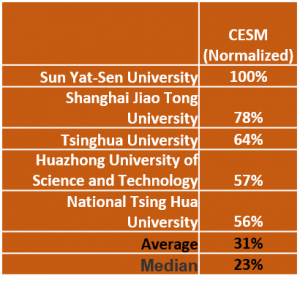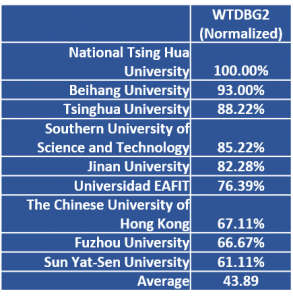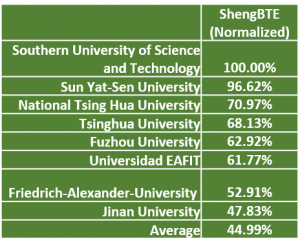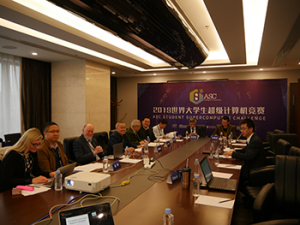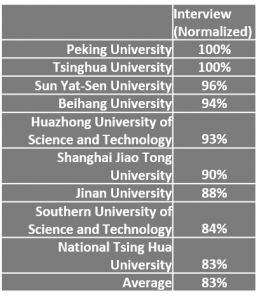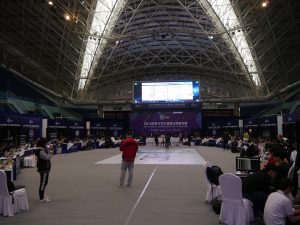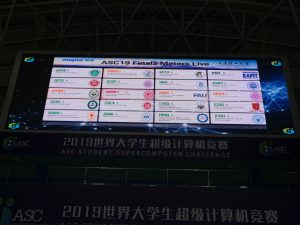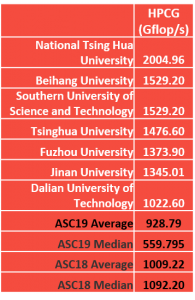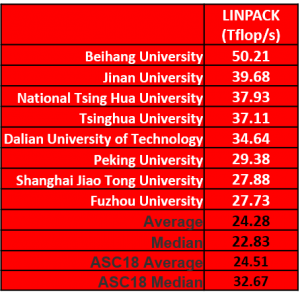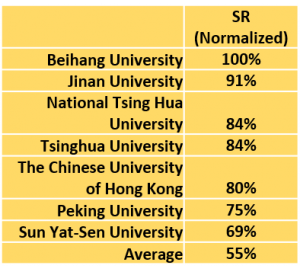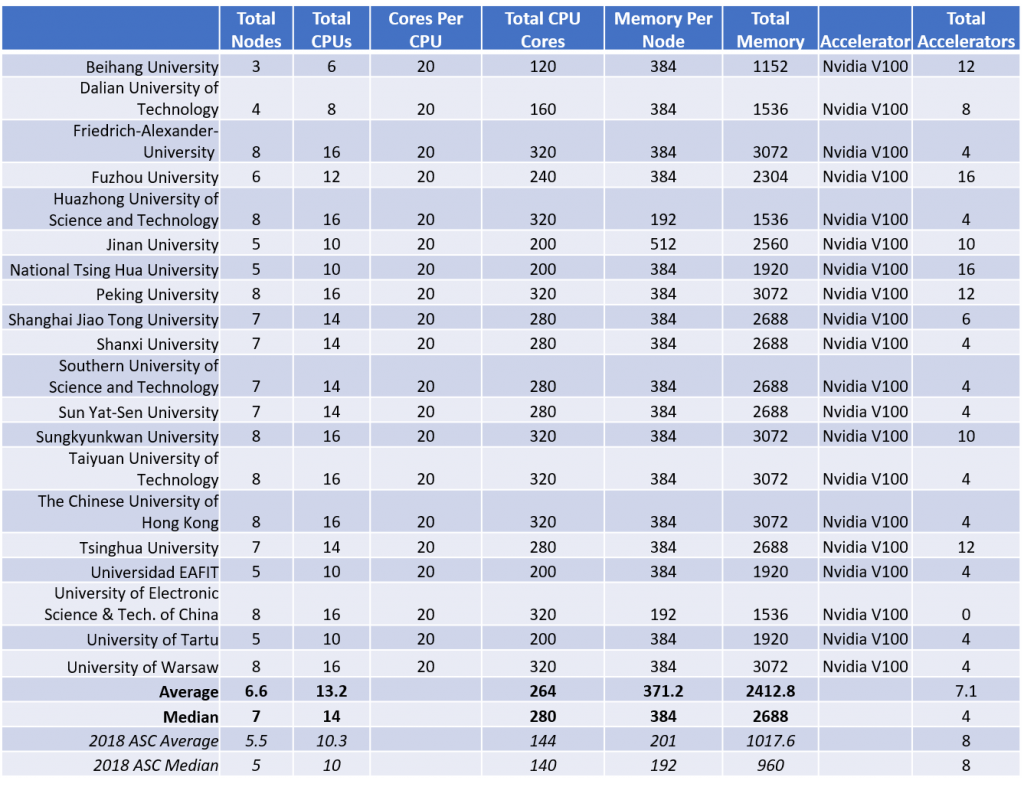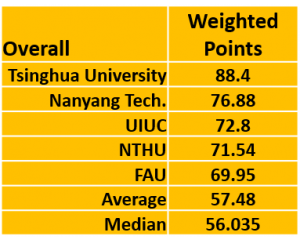We’re only eight days away from the start of the ISC 2019 Student Cluster Competition. Fourteen student teams from eleven countries will travel to Frankfurt, Germany, to vie for the ISC19 cluster competition championship trophy, highest Linpack award, and the Fan Favorite award. It’s going to be a very exciting event, chock full of triumph, with a smattering of tragedy.
We’ll be covering this competition in our usual comprehensive way from the opening bell all the way to the ending gong (note to self: bring a gong to Germany).
But we’re going to tell a different story today. It’s a story about how one organization is using the Student Cluster Competition to build a new work force, schooled in HPC, who will help to revolutionize the technical infrastructure for an entire country.
The Centre for High Performance Computing (CHPC), under the tutelage of Happy Sitole, has been participating in the ISC Student Cluster Competition for the past six years, winning the championship three times, taking second place twice, and winning the bronze medal once. That’s a fantastic record. What’s even more interesting is how they did it.
Cultivating Home Grown Talent
The overriding goal of the CHPC is to spread HPC knowledge far and wide throughout South Africa and, over time, build a workforce that understands HPC and can fuel a computing-led renaissance in the country. Participating in Student Cluster Competitions is one of the keys to making these goals a reality.
Most cluster competition teams start at the university level – a professor or a group of students hear about the competition
, decide to put together a team and apply for admission to the tournament. South Africa takes a decidedly different approach.
The CHPC puts together basic HPC training sessions and offers them to any university in the country that’s interested. These classes start at a very basic level – the vast majority of the kids have never been exposed to HPC, Linux, or cluster computing concepts. Once they have initial training, each university decides if they want to field a team of four students and send them to the intra-country competition – traditionally held at the CHPC conference each December.
The team that wins the CHPC conference competition become the first four members of the CHPC national team. Judges then select two outstanding students from other teams, which brings the squad up to six strong.
100% Green
One of the important policies that the CHPC has instituted is that every CHPC team is composed of students who haven’t participated in a previous competition. Former team members mentor current teams and help prepare them for the competition in Frankfurt. While this constant turnover of student competitors might make it tougher for CHPC to compete with more experienced teams, it produces the maximum number of HPC-trained students who are ready for employment by industry or to pursue further education.
2018 Action & Results
Ten teams took up the challenge of the South African Student Cluster Competition, held in early December in Cape Town. The entire competition was generously underwritten by Dell, with the company providing a menu of equipment for the teams. This was also the first challenge for the kids; how should they configure their cluster?
They were given a modest budget and a price list , everything else was up to them. Most teams selected three beefy dual-processor workstations, with one acting as a head node and the others as compute nodes. They also tended to use a 10GbE point to point direct interconnect rather than spend money on a dedicated switch. This worked out for the most part, but nearly every team (except the two with switches) had interconnect problems at one point or another.
The teams faced a challenging set of benchmarks and scientific applications over the three-day event. On the benchmark side, they had to run HPCC (an amalgamation of several benchmarks), along with a separate HPC (Linpack) run, and the ever-grueling HPCG benchmark.
Team $Witts jumped out to an early lead with their pack-leading Linpack9210 score and their second place HPCC score. On HPCC, Team Department of Spaghetti Engineering topped the field, with Team $Witts, Team COMMITment Issues, Team Short Circuits, and Team Will Code for Pizza in a near photo finish for second and third places.
Department of Spaghetti Engineering also topped the rest of the teams on HPCG, narrowly edging out Short Circuits and $Witts.
Things got a lot harder when it came to the real-world scientific application runs. The first application was GROMACS and it contained four separate tasks. The first was a adh_cubic run, then 1.5m_water, a visualization, then doing a run on the Microsoft Azure Cloud configured with two NVIDIA V100 GPUs.
Team Will Code for Pizza grabbed first place on adh_cubic with a comfortable margin over Short Circuits, $Witts, and Department of Spaghetti Engineering. But the Short Circuits struck back on the 1.5m water run, pounding the rest of the field. Pretty much everyone successfully completed the visualization round, gaining maximum points for this task. The Short Circuits continued their winning streak by taking the top score on the Azure GPU GROMACS run, but Department of Spaghetti Engineering ran a very close second. Will Code for Pizza and $Witts were just an eyelash behind, taking home third and fourth place respectively.
At this point in the competition, Short Circuits had a slight lead over $Witts and Department of Spaghetti Engineering with Will Code for Pizza still in the hunt. But the toughest applications were still ahead.
FEniCS, an application used to solve partial differential equations, turned out to be the Waterloo for many teams. The way the CHPC cluster competition works is that teams are required to complete an application before getting the dataset for the next application. I think that many teams didn’t get their FEniCS dataset until it was too late for them to fully set up and optimize their run.
One team that didn’t have this problem was The Short Circuits. They nailed down yet another win on FEniCS, with Will Code for Pizza running in second with $Witts and Department of Spaghetti Engineering trailing the leaders. But there was still one application left to run: Tensor Flow.
This turned out to be the “Application of Destiny” for the 2018 CHPC Student Cluster Competition. Only one team managed to finish this app run and nab all of the point for completing it. And that team was Department of Spaghetti Engineering. This gave them enough points to log a normalized overall score of 84.54%, taking home the championship trophy and setting their sights on the ISC19 competition in Frankfurt.
It was a close competition with The Short Circuits taking second with their score of 77.47%, $Witts in third with 72.58% and Will Code for Pizza getting honorable mention for their fourth-place finish of 69.36%.
Meet the Teams and See the Awards
We were in Cape Town with our plethora of video gear, including a new camera, to interview the teams and the awards ceremony. The team videos have some sound issues, which I’ll blame on myself for not adequately learning how to integrate the new camera into my gear stack. Still, take a look at the team videos and get to know them, they’ve got a lot of personality and will be great additions to our industry.
Department of Spaghetti Engineering:
The Short Circuits:
$Witts:
Will Code for Pizza:
Tiger Team:
Error 404:
Team Phoenix:
Team Thar:
COMMITment Issues:
Kalisa Academy:
Was There a Party? Oh Yes There Was!
If there’s only one thing I’ve learned by attending three CHPC conferences, it’s this: the CHPC knows how to party. Combine fantastic food, plenty to drink, great entertainment, plus HPC student awards, and you have all the ingredients you need for one hell of a great time.
As part of the party, plenty of awards were handed out, along with generous gift bags for the winning teams and students. Here’s who won what:
Innovation Award, sponsored by Altair, for the best cluster design: Team Error 404
Best Teamwork Award, sponsored by Bright Computing: Team Will Code for Pizza
Beat the Clock Award, for the team that just barely got their results in, sponsored by Mellanox: $Witts
Most Independent Team, the team that needed the least help from mentors, sponsored by Eclipse Holdings: Team Short Circuits
Least Stressed Team, the team that had the most fun: Department of Spaghetti Engineering
Best Female Competition Participant, a massive $5,000 award sponsored by Intel: Mapule Madzena
Here’s a video of the awards section of the party:
 In January, following the competition, Dell brought the entire team to Dell headquarters in Austin, Texas. While there, Dell engineers helped train the students and collaborated on the design of the team’s ISC19 system. The CHPC team were also guests at the Texas Advanced Computing Center, where they soaked up even more HPC knowledge.
In January, following the competition, Dell brought the entire team to Dell headquarters in Austin, Texas. While there, Dell engineers helped train the students and collaborated on the design of the team’s ISC19 system. The CHPC team were also guests at the Texas Advanced Computing Center, where they soaked up even more HPC knowledge.
This team should be well prepared for the ISC19 competition in Frankfurt next week. If they hold true to form, they’ll be on the podium when the awards are announced. One hallmark of the CHPC teams is that they tend to outwork their competitors at these events. We’ll see if that happens again this year, but they definitely be a force to be reckoned with in Frankfurt.
As always, we’ll be covering all of the action at ISC19, so stay tuned……

